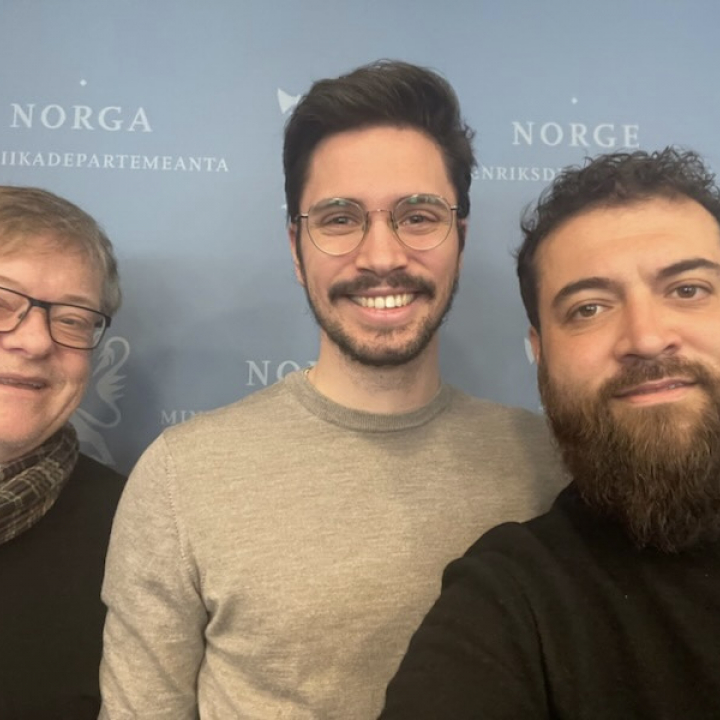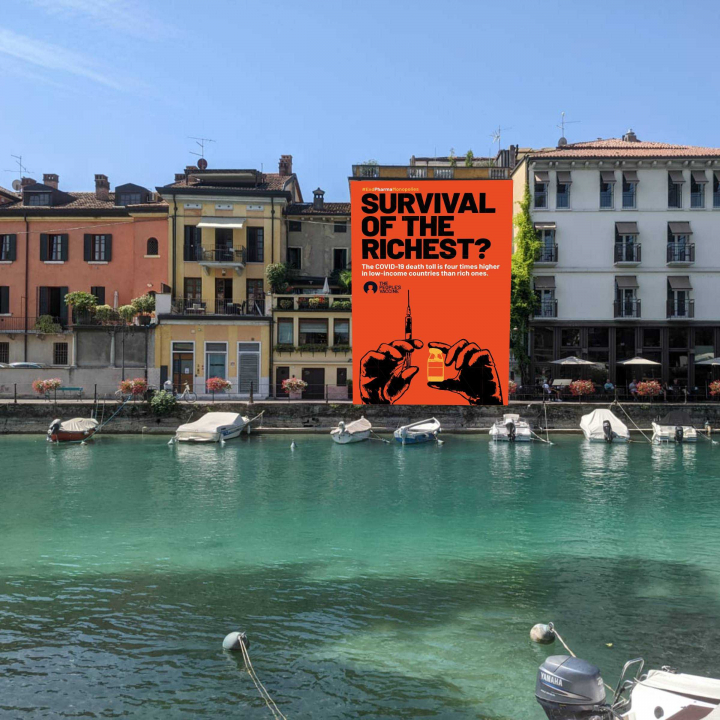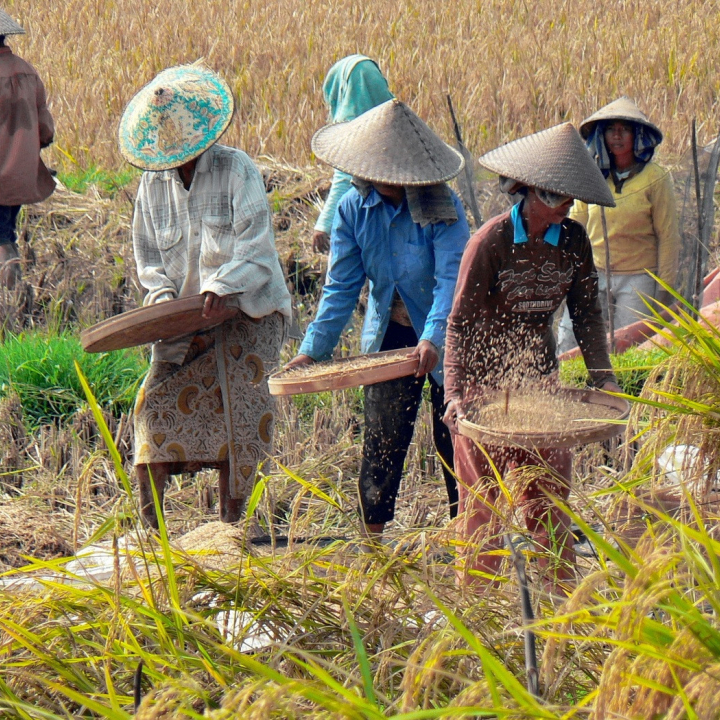*South Africa’s intervention at the TRIPS Council of 20 November 2020*
Thank you, Madame Chair.
Let me join other co-proponents in thanking Members for their very active
participation in the last TRIPS Council meeting. As our co-proponent Kenya
indicated, the objective of this meeting is to respond to issues that
Members raised the last meeting of the TRIPS Council. Those opposing the
waiver proposal have repeatedly suggested that voluntary approaches offer
the best solution. As would have been emphasized, the TRIPS waiver proposal
is supportive of any voluntary licenses issued by companies, however the
terms of such licenses are often such that they may restrict access or
reserve supply only for wealthy nations. Amidst a global pandemic, Gilead
signed secretive bilateral licenses for Remdesivir with a few generic
companies of it’s choosing that excludes supply to nearly half of the
world’s population including many developed and developing countries.
Similarly, for vaccines, bilateral deals are being signed by pharmaceutical
companies with specific governments but the details of these deals are
mostly unknown. Usually these agreements are for manufacturing of limited
amounts and solely supplying a country’s territory or a limited subset of
countries. Many companies have not signed any agreements to expand
manufacturing and supply, meaning that during the time of vaccine
development when such supply bottlenecks could have been addressed,
companies are refusing to share intellectual property in a responsible
fashion. This turns countries against each other to compete for supply in
lieu of working together to defeat the pandemic. For instance, 82% of the
recent Pfizer/BioNtech vaccine that is claimed to be 90% effective has been
pre-booked by developed countries representing 14% of the global
population, and no public commitment has been made in support of sharing
its COVID-19 vaccine knowledge, technology and related intellectual
property to boost supply, reduce price and enhance equity.
Some argue that pharmaceutical companies have made a “no-profit pledge”
during the pandemic. But even this pledge is suspect given the absence of
transparency on actual costs of research and development and that
pharmaceutical companies may unilaterally declare an end to the pandemic,
as early as July 2021, according to at least one agreement with a
manufacturer. Some companies are not offering prices at a not-for profit
price, charging anywhere from $20 to an estimated $40 per dose, which would
cost governments billions of dollars. Pfizer and BioNTech are expected to
make at least $13 billion from their vaccine next year.
Madam Chair,
Ad hoc, non-transparent and unaccountable bilateral deals that artificially
limit supply and competition cannot reliably deliver access during a global
pandemic. These bilateral deals do not demonstrate global collaboration but
rather reinforces “nationalism”, enlarging chasms of inequity.
Some point to the unilateral non-enforcement announcement of Moderna as an
example of the success of voluntary approaches. In October, Moderna
announced that “while the pandemic continues, Moderna will not enforce our
COVID-19 related patents against those making vaccines intended to combat
the pandemic” adding that “we are also willing to license our intellectual
property for COVID-19 vaccines to others for the post pandemic period”.
This announcement does not provide other manufacturers much legal certainty
as to freedom to operate and does not include other forms of intellectual
property protected information and technology needed to produce the vaccine
such as cell lines and know-how. Furthermore, with respect to future
intentions, it is unclear what period is intended by “while the pandemic
continues” and what licensing arrangements will be applicable
post-pandemic, which territories will be covered etc.
In sum, the global pandemic response cannot be dependent on the possibility
of such ineffectual, ad hoc announcements.
Voluntary licenses offered by patent-holding pharmaceutical corporations
also tend to exclude millions of people from access to more affordable
treatments. For instance, the Medicines Patent Pool licenses normally
exclude many developing countries and all high-income countries from being
supplied under the licenses. There are also several other restrictions
attached to voluntary license. Some voluntary licenses even exclude the
manufacturing countries from supplying their home country markets. Hence,
conventional voluntary licenses do not offer a sustainable path to
resolving the COVID-19 pandemic.
*Some have suggested that there is no evidence that intellectual property
is a barrier to accessing vaccines, treatments, or technologies in the
global response to COVID-19.*
Cases involving potential intellectual property infringements emerged early
on in the pandemic revealing the complex legal implications of producing
copies of life-saving medical products or parts thereof as well as impact
on access.
*Therapeutics*
A number of therapeutics are under investigation. Some of the therapeutics
are presently off-patent but as its use is explored for COVID-19 treatment,
the filing of new patent applications extending to secondary uses of these
therapeutics can be expected. Several other therapeutics under examination
are patented in multiple jurisdictions. Attached please refer to a selected
patent landscape of priority therapeutics. Some of the candidate have
patents filed and/or granted in nearly 50 developing and least developed
countries.
The case of Remdesivir best sums up the how patents can block access to
therapeutics. The primary patent on the base compound of Remdesivir has
been granted to Gilead in more than 70 low-and middle-income countries,
hence potentially blocking access to generic alternatives until 2031. Civil
society called for non-enforcement of Gilead’s patents, but this call went
unheeded. Instead Gilead signed secretive voluntary licenses with a few
generic manufacturers of its choosing to supply countries as determined by
Gilead. As a result, other manufacturers in countries with patents were
excluded from manufacturing and nearly half of the world’s population were
prevented from being supplied by the licensee and hence denied from
accessing more affordable generics. While more recently WHO has declared
Remdesivir to be ineffective in the treatment of COVID-19, this case study
is a striking example of inequities that will replay should the
international community fail to take steps to address intellectual property
barriers. Such inadequacy of supply also allowed Gilead to bid up the price
of the treatment for those countries that were excluded from a voluntary
license agreement, and to use the lack of supply to persuade some
countries, such as the 27 Member States of the European Union, to spend
more than one billion euros on the drug even though the WHO was about to
disclose that through its own trials the drug was not effective.
In therapeutics, monoclonal antibodies (mAbs) holds promise for curbing
COVID-19. Many mAbs are currently in development for treatment and
prevention of COVID-19. Even prior to the spread of COVID-19, access to
mAbs was highly unbalanced, with Europe, US and Canada accounting for 80%
of global sales. Prices also remain prohibitively expensive.
Many of the monoclonal antibody candidate therapeutics such as tocilizumab,
sarilumab, bevacizumab are under patent protection in many developing
countries. Secondary patents on new uses or formulations of an existing mAb
product could further strengthen the patent holder’s market monopoly, also
the primary reason for delayed introduction of biosimilars in some markets
including in the US.
Disparity in access is certain unless concrete steps are taken to address
intellectual property barriers. Competition to lock up existing capacity is
already intense. For instance, it is reported that Regeneron signed a
US$450 million deal in July to sell to the US enough doses of its antibody
treatment, REGN-COV2, to treat around 300,000 people. Similarly Eli Lily
has announced an agreement with the U.S. government for US$375 million to
supply 300,000 vials of bamlanivimab (LY-CoV555) 700 mg, an investigational
neutralizing antibody, granted an Emergency Use Authorization (EUA) by the
U.S. Food and Drug Administration (FDA).
*Diagnostics*
In March 2020, it came to light that Netherlands was not able to do mass
testing for COVID-19 as most Dutch testing laboratories work with Roche
equipment and depend on Roche for supplies of the liquid buffer needed to
run the tests, and there was a shortage of this buffer. Initially, Roche
refused to provide the recipe for the buffer. With the recipe, labs would
be able to quickly make their own solution and ramp up their testing
capability. Eventually however as public pressure mounted and the European
Commission considered investigating Roche for possible abuse of its market
position, Roche agreed to release the recipe to the Dutch authorities.
Shortages of testing materials in developing countries have also been
widely reported as most supplies are destined for the US or Europe. In May
2020, South Africa, my home country, faced similar challenges as its
diagnostic infrastructure also depends on the use of proprietary test
materials – including reagents, consumables and cartridges. A virologist
with the South African National Health Laboratory Service explained “that
commercial diagnostic manufacturers develop their own tests, containing
proprietary reagents and unique consumables and packing. As a result, the
tests cannot be interchanged between different diagnostic systems” adding
that “even we don’t know what is in the proprietary reagents”, as the
specific formulations are protected as trade secrets”. This situation
prevents laboratories from making their own test materials or procuring
test materials from sources other than the diagnostic machine’s
manufacturer.
MSF in its analysis has found that “major diagnostics companies hold a
considerable number of patents, often bundled into thickets for various
instrumentation, assays, methods and software, related to different aspects
of the technologies, methodologies and devices”, concluding that “the
overall business model for diagnostics results in multiple dominant closed
diagnostics systems (since each major diagnostics company develops both the
device and the consumable parts – for example the reagent kits or
reagent-loaded integrated cartridges – specifically tailored to that
device), making competition extremely difficult. The high cost and burden
of switching between systems results in a “locked-in” effect for end users
since they have no choice but to buy both the device and the assays from
the same company”.
Testing is a crucial aspect of containing the spread of COVID-19 especially
in the absence of effective therapeutics and vaccines, and some countries
are now moving to a model of mass testing of the entire population , either
at once or on a regular basis, as a route out of the pandemic.
And yet, the disparity in testing between developed countries and other
countries is vast. As of 11th November, reported tests for every one
million population, was approximately 342 000 in developed countries, 81000
in developing countries and 9700 in LDCs. In other words, high income
countries are testing its population at nearly 35 times the rate of the
world’s poorest countries. When new tests come onto the market, only a few
countries rapidly purchase all of the existing supply or put forward large
sums of capital to claim all supply. More supply is needed, and such supply
requires multiple manufacturers unhindered by any barriers to production.
Intellectual property has proven to be a barrier in the scaling up of
testing for COVID-19. Existing manufacturers are unable to keep up the
needed global supply, hence negatively impacting a country’s ability to
screen samples for COVID-19 – an essential part of controlling the pandemic.
*Vaccines*
45 vaccine candidates are in human trial, while about 10 are in or entering
phase III trials. The candidate vaccines are of various types – virus
vaccines using live attenuated virus, viral vector vaccines, protein- based
vaccines, and nucleic acid or RNA and DNA vaccines, which are completely
new platforms.
The effects of patents in hindering the introduction of affordable vaccines
in developing countries have been published by MSF. While the focus is on
pneumococcal conjugate vaccines (PCV) and the human papillomavirus (HPV)
vaccine, the paper reveals the expansive patent claims applied for or
granted across the entire spectrum of vaccine development, production and
use including on vaccine-production materials such as chemical reagents,
host cells, vectors, and DNA/RNA sequences; vaccine compositions; process
technologies; vaccination age groups; methods of using vaccines; and
vaccine schedules and presentations. These patents increased uncertainty,
costs, delayed competition, leading to high prices in developing countries
and hindering access. In 2016-2017, MSF filed a patent opposition and later
a writ petition to challenge Pfizer’s vaccine composition patent that
blocked development of alternative versions of Pfizer’s PCV13 vaccine.
Equivalent patent granted in South Korea, compelled a Korean vaccine
developer to close their production of PCV13. The patent invalidation
proceeding launched by MSF towards Pfizer remains open in India concerning
PCV13.
A similar situation will materialise with COVID-19 vaccines unless concrete
steps are taken to address the intellectual property barriers. Research
already discloses many patent filings and grants such as more than 100
patents on mRNA platform technologies that are used for COVID-19 vaccines.
*Other Medical Products*
In March 2020 in the Lombardy region in Northern Italy, one of the areas
which was hit hardest by the pandemic an Italian hospital ran out of
ventilator valves (which cost $11,000 each), and their regular supplier
could not produce them on time.
Two local engineers reverse engineered and 3D printed replacement valves
for the cost of about $1. It is reported that the original manufacturer
declined to share the blueprints and even threatened patent infringement
and that potential legal implications stopped the engineers from
distributing the digital design file more widely, despite receiving
hundreds of requests for the 3D-printed valves”.
Following this case, a law firm warned “[m]anufacturers should be aware of
the complex intellectual property issues concerned with this 3D printing
technology. Parts such as valves or other medical devices and equipment are
capable of protection by patent and/or registered design. Unregistered
design rights and copyright will also apply to the part itself and/or the
digital model or CAD file. Some or all of these rights might apply in
respect of a single component”. The firm cautioned “In scanning a component
such as a valve, and manufacturing a part using 3D printing equipment,
there is a risk that this action will infringe an existing patent, design
or copyright which protects the component, leading to an injunction or
claim from the rights holder for damages or other remedies (such as
delivery up of infringing parts)”. Notably in In March 2020, WHO noted a
shortage of ventilators around the world.
In another case, the Governor of Kentucky has called on multinational
company 3M to release its patent for the N95 respirator — a desperately
needed type of protective gear that’s difficult to get during the
coronavirus pandemic — so that more manufacturers can start making it. The
N95 is considered top-of-the-line face protection for the professionals on
the front lines of this pandemic. The Governor is reported as saying “The
procurement is incredibly difficult, as is the manufacture because it’s
under patent. I’d like to see the people with that patent, which is 3M,
provide that to the nation under a license for this period of time,” adding
that “I believe it’s their patriotic duty, and they should put it out there
so everybody else can manufacture it,” he said of 3M. “That hasn’t
happened.”
*Intellectual Property Disputes*
Emerging intellectual property disputes already threaten the development
and supply of COVID-19 medical products. In one dispute Regeneron and
vaccine developers Pfizer and BioNTech are facing a lawsuit from Allele
Biotechnology and Pharmaceuticals alleging that their coronavirus products
were developed using Allele’s mNeonGreen fluorescent protein without the
company’s permission.







